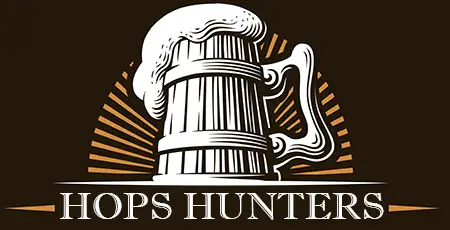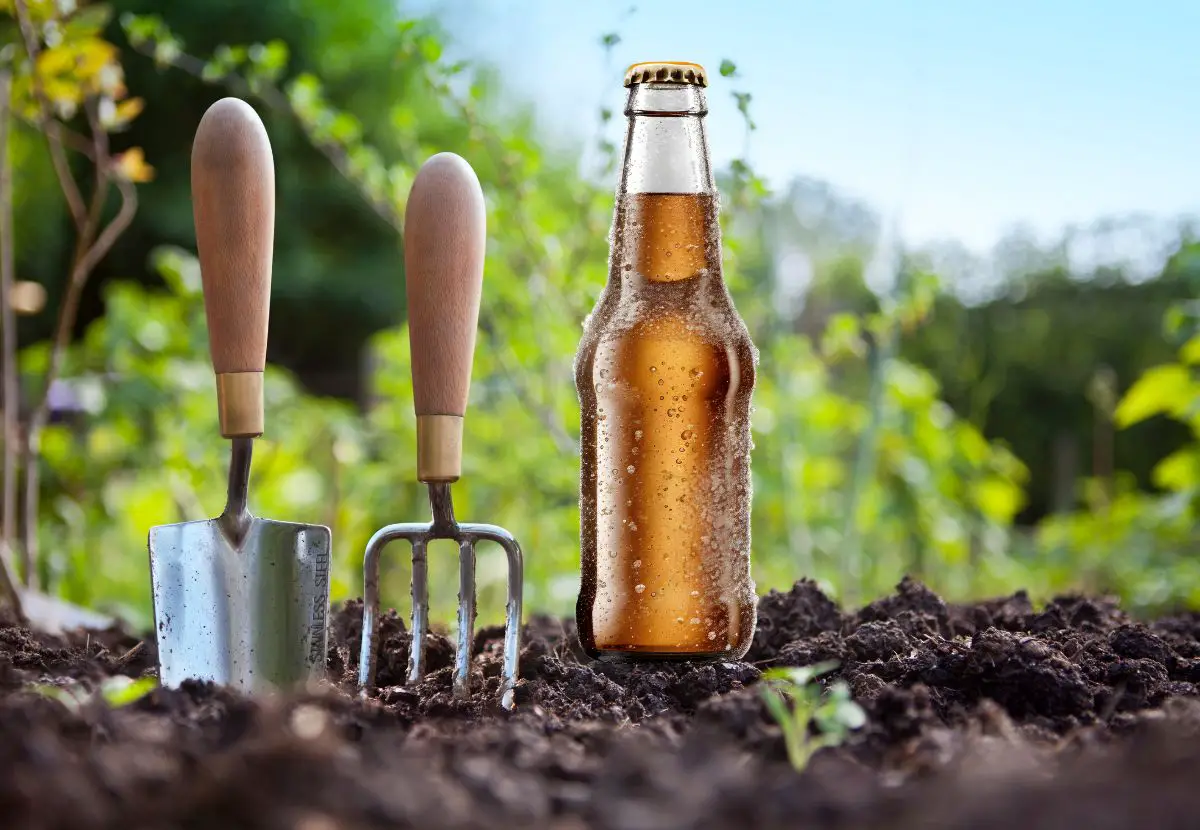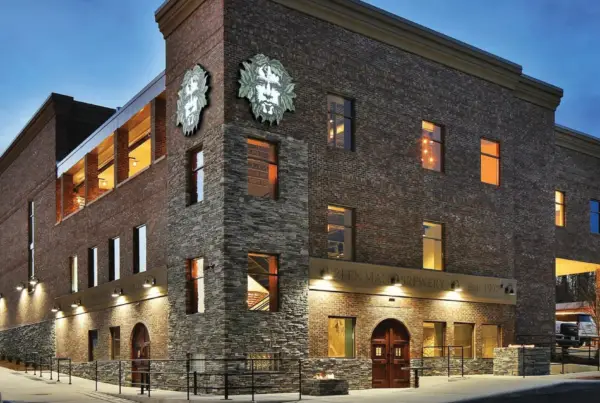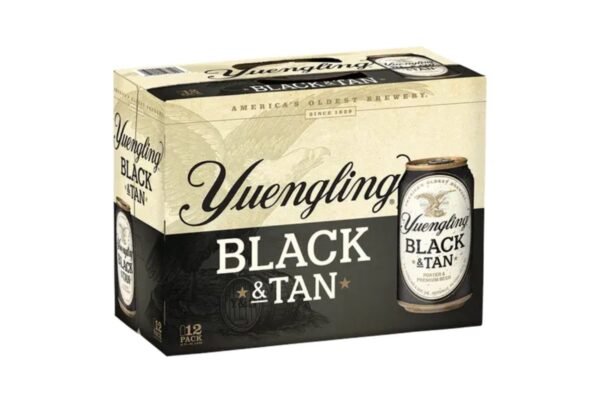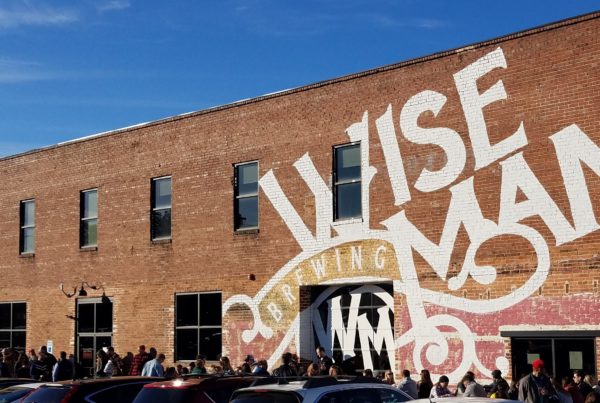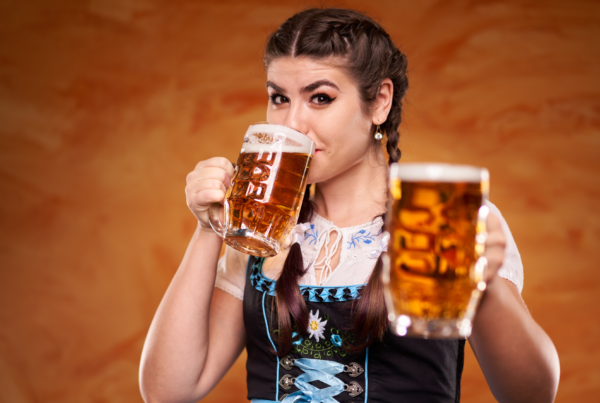Beer Gardening: Does Beer Help Plants Grow?
We’ve all been there: You’ve got a half-finished bottle of leftover beer, and you’re staring at your drooping daisies thinking, “Could one help the other?”
Today we’re digging into the facts to give you a well-rounded look at how beer interacts with plant life. Let’s take a closer look at the ingredients of beer and their potential impact—or lack thereof—on your garden.
Beer & Plant Growth: The Sobering Truth About Suds & Soil
Don’t go pouring your six-pack into that flower bed just yet. While it’s certainly tempting to think that the ingredients in beer could be helpful for boosting plant growth, the truth is that, unlike using coffee in the garden, the scientific evidence is still sparse.
Yeast: Blooms or Bust?
Will sprinkling beer make your roses bloom faster than you can say “fermentation”? Don’t bet your begonias on it. Yeast can be a part of composting, but there’s no concrete evidence that it directly benefits plants.
Plus—and this is important—let’s not forget that alcohol is sort of a poison for plants, and can be used to inhibit their growth—not boost it.
So if you really want to try this, make sure you dilute the beer. You’re not trying to get your plants tipsy here.
Malt: A Sugar-Coated Myth?
Malt contains simple sugars, and while sugars can offer a quick energy source to plants, they’re not a substitute for the nutrients provided by regular fertilizers. Just like humans, plants need more than sugar—they need actual nutrients. So sure, malt might provide a bit of a sugar rush, but it’s about as misguided as giving kids candy and expecting them to grow strong bones.
While the jury’s still out, it’s possible that the sugar in beer might give your plants some quick pep in certain circumstances—but you’ve also got all that alcohol in there. So, don’t toss out the Miracle-Gro just yet.
Hops: The Bitter Truth
Although hops helped IPAs make the voyage from Britain to India unscathed, modern Internet claims that they can act as a natural pesticide aren’t substantiated by scientific evidence. In fact, the only thing hopping should be you—to the gardening center for some real pesticides.
Beer Bottles: This One Actually Works!
Finally, here’s where beer can actually be helpful for gardening: Use your empty beer bottles as DIY watering globes.
Carefully drill a small hole in the bottom, fill the bottle with water—not beer, wine, Gatorade, or anything with alcohol or electrolytes—and stick it upside down near your thirsty plant. It’s just like a scene right out of Idiocracy, except this time, you’re actually giving the plants what they crave.
Plus, since they’re most likely going to be brown or green beer bottles (and possibly UV shielded as well) you probably won’t have to deal with as much evaporation as clear watering globes.
Attracting Pollinators with Beer: Make Your Garden a Butterfly Bar?
There’s a popular claim that the presence of stale beer can attract butterflies. While the scientific community isn’t exactly raving about this one, it’s a harmless enough experiment—as long as you’re not harming any plants by dousing them in alcohol.
If your garden becomes the new butterfly hotspot, please send us photos. But remember, to use stale and diluted beer only. Butterflies aren’t known for their responsible drinking.
Practical Tips for Using Beer in the Garden
Considering giving “beer gardening” a try? Here are some tips:
- Use a 1:1 beer-to-water ratio to dilute the beer’s alcohol content.
- Use a garden sprayer for more even application.
Remember this is more of an experiment than a proven gardening method—it is definitely not a substitute for regular plant care.
The Bottom Line on Beer & Plants
Can a can of beer be a secret ingredient for a thriving garden? Absolutely not.
Can it serve a purpose if used wisely? Possibly.
Is there room for some experimentation? Sure, why not.
While beer contains components like yeast and sugar that could theoretically enrich soil and benefit plants, pouring beer on your plants shouldn’t exactly replace your regular gardening routine. Plants still need the tried-and-true essentials like proper fertilization and watering. Sure, we all want our backyard to be a beer garden—but pouring Coors Light on some sunflowers isn’t going to do it.
And so, as you ponder whether to share your last can with your azalea bushes, remember: dilution is better than delusion. Experiment if you wish—just be careful, and keep your expectations in check. Cheers!
